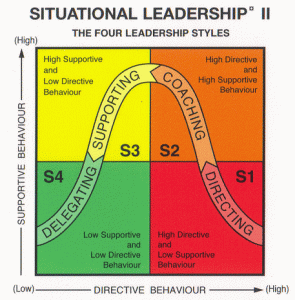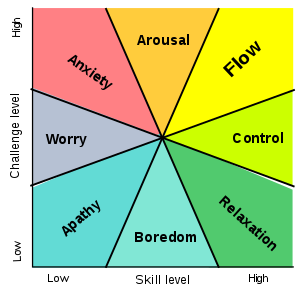Following the previous topic about performance, I would like to dive deeper into the subject of People Development; leadership in building effective organisation is one of my favourite areas.
I will explain how to get your employees from “unconscious incompetence” through “conscious incompetence” on to “conscious competence” and finally to “unconscious competence” and, importantly, keep them there.
The process is called Situational Leadership and has been developed by Kenneth Blanchard and Paul Hersey.
The concept is simple.
There are 4 development stages:
1. Low competence and low commitment
2. Low competence and high commitment
3. High competence and low/variable commitment
4. High competence and high commitment
Development stages are described based on the level of competency and commitment. Competency is moving from low to high, in line with intuition. However, the level of commitment is moving from high through low and back to high.
An employee could be at any one of these stages for a given task. As managers we need to recognise, not only at which stage the employee is currently sitting, but also how to apply the right leadership style to improve their performance; importantly we need to be able to adjust our management style to suit each unique circumstance.
The leadership stages are as follows:
1. Directing – the manager defines the role and communicates the what, how, why, when and where to do the task
2. Coaching – the manager is still providing direction and providing the socio-emotional support that employee needs to move through the low commitment
3. Supporting – shared decision-making how to accomplish the task; the manager is there to answer question when needed and motivate
4. Delegating – the manager’s involvement in decisions is decreasing, staying only to monitor the progress; the process and responsibility have been passed to the individual.
Using the theory from my previous post about flow and this Situational Leadership one you have a good recipe to help your employees to reach high competence and operate in flow state achieving excellent results and satisfaction.


